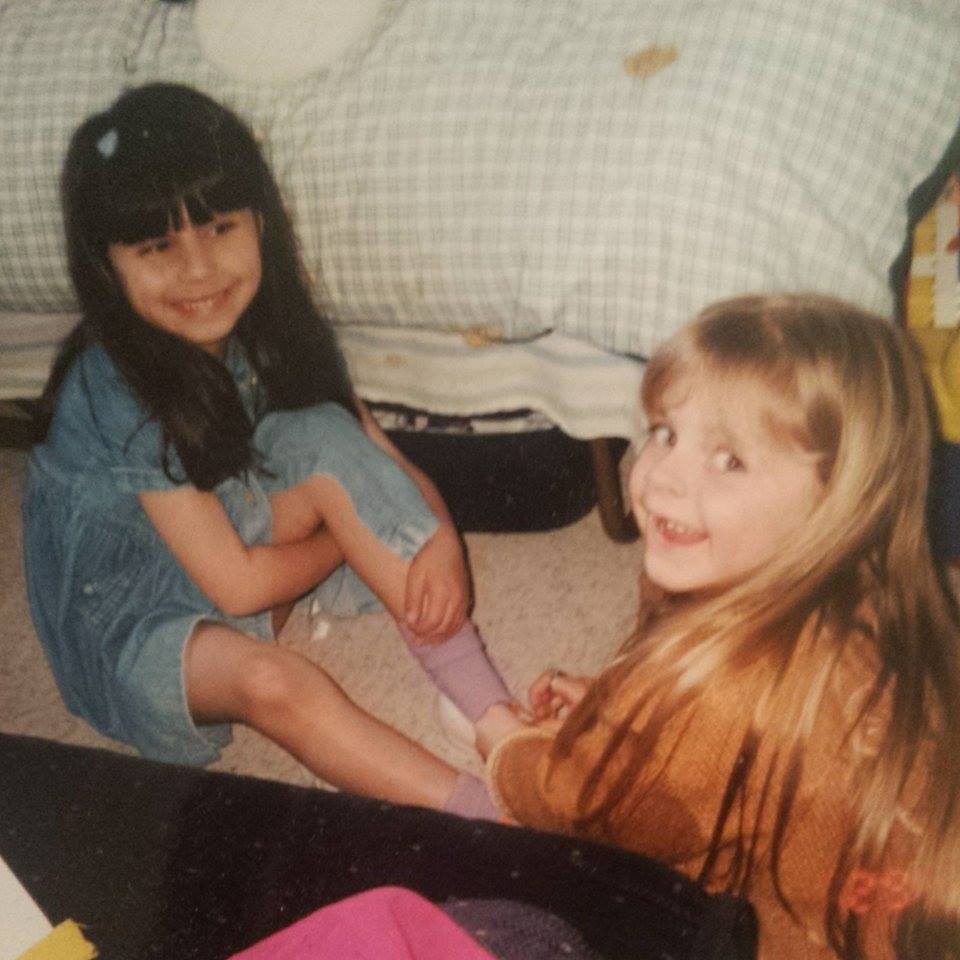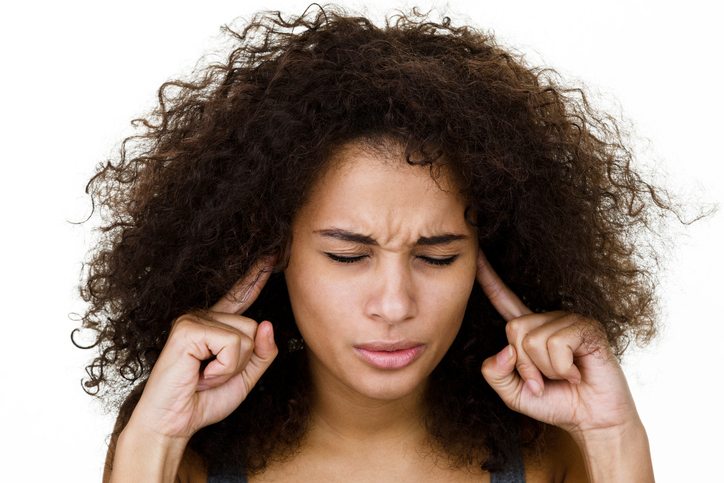Does the sound of a clicking pen drive you into an inexplicable rage? Or does the noise someone makes when they’re chewing send you into a fury? Then maybe you have misophonia. Healthista’s Parisa Hashempour talks about her struggle with the condition and speaks to the experts about treatment…
Awkwardly sat on a squishy grey chair in front of a therapist in his small practice room in Edinburgh, I knew that it was time to get help. I’d always had a serious problem with repetitive noises and yet I felt like a fraud sitting there. Therapists rooms are spaces for people with real issues, I thought to myself, and my problem isn’t even recognised as a registered medical condition by the NHS. There are few statistics, few experts on the condition and I’m more than aware that there are far worse problems that I could have in life. The thing I remember the most about sitting in that practice room wasn’t what either the therapist or I were saying, because I could hardly focus on that. All I could hear was the sound of the clock on the wall. Tick, tick, tick. Every time the clock ticked it felt as though a small insect was stinging me. At first it was irritating and then slowly my irritation turned to anger and then that turned to desperation to escape and then finally I was sat there for what seemed like no reason desperately trying to hold back floods of tears.
Every time the clock ticked it felt as though a small insect was stinging me.
What is Misophonia?
For as long as I can remember certain sounds and movements have stirred an intense emotion in me that can only be described as a combination of total rage and anxiety. Although for most people the condition begins in puberty I can’t remember a time in my life when I haven’t been driven mad by certain noises. The innocent sound of someone breathing slightly too loudly or absent mindedly clicking their pen makes my blood boil, even the sight of someone twirling a piece of hair around their finger makes me shudder and cup my hands around my eyes. I’m forever changing carriages on train journeys to get away from triggers and I often have to wait until a film has been out for a while before I go to see it at the cinema as I want to minimise the risk of being sat in front of someone loudly chewing.
I can’t remember a time in my life when I haven’t been driven mad by certain noises. The innocent sound of someone breathing too loudly or clicking their pen makes my blood boil
I suffer from a condition called misophonia and it seems that I’m not alone. According to Dr Pawel Jastreboff, an audiologist and leading researcher on the topic, misophonia might effect between 2-3% of the population. But if so many people suffer from this condition then why has nobody heard of it?

Misophonia, also known as Selective Sound Sensitivity is a little known and largely under-studied condition. The word misophonia translates quite literally as a hatred of sound and was coined in the year 2000 when the married couple, audiologists Dr Pawel and Margaret Jastreboff noticed that the symptoms of some of their patients didn’t fit the descriptions of any existing audiological conditions. Some people were having a strong emotional response to the most subtle sounds that other people might not pick up on but at the same time had no problem with louder noises.
TV show host Kelly Ripa came out as a sufferer and last month MTV aired a True Life: I have Misophonia special.
‘I know very well that in the medical field if you do not create a name for a new condition, the condition does not exist’ Dr Pawel Jastreboff said. And it seems he was right, for in the years that followed the birth of the term, more and more people began to come forward as sufferers. The condition has gained a little more fame lately, especially across the pond as american TV show host Kelly Ripa came out as a sufferer and last month MTV aired a True Life: I have Misophonia special. When people with misophonia hear one of their trigger noises or see a trigger movement they are filled with emotions such as anger, disgust and hatred. The feelings then disappear as quickly as they came when a person is removed from the trigger.
When people with misophonia hear one of their trigger noises or see a trigger movement they are filled with emotions such as anger, disgust and hatred

It is not only noises that cause issues for misophonics however and repetitive motions can be equally as distressing. The sound of loud typing on computers drives me mad but I can easily plug in my earphones to drown out the tapping. But the sight of someone’s fingers moving over their keyboard is much harder to avoid and this can aggravate me so much that on a stressful day I might have to cup my hand over my eyes or sink into my chair and pull my hair around my face. Misophonia also seems to be more pronounced in me when I am stressed, on a good day I can be only slightly irritated by noises that on other days might make me come close to standing on a chair and screaming.
Living with it
I was relentlessly teased by my peers at school who knew that I’d lose my temper if they sat behind me and clicked their pens and my poor family had to suffer through me glaring at them over the dinner table as they quietly ate their food. But there was one incident in particular that really sticks in my memory and helps me to describe to others the feeling of helplessness misophonics can sometimes experience.
MORE: How to get more vitamin D (the sunshine vitamin) during the winter
I was in my first year of university and I was sat in a lecture hall, squeezed into the middle of a row. Lecture halls were difficult spaces for me anyway because there was always someone chewing gum or clicking their pen, sneezing or coughing. But this time was worse. At the end of every sentence and before she began the next the lecturer would consistently make an ‘uhhh’ noise, always in the exact same tone. I could hear it coming before it even came out and the rage was boiling up inside of me ready to burst. ‘Why is she making that noise? Why is she being so inconsiderate? Surely she can stop herself?’ all these angry questions were running through my mind.
Of course I knew that I was being completely unreasonable but I felt totally vulnerable knowing that I couldn’t escape the situation and I couldn’t do anything to stop the noise. I was so embarrassed for being so angry and as I sat there I began to silently cry. I was stuck there for the rest of the hour but it felt as though I were there for much longer. The experience was pretty distressing and made me feel like I had it pretty bad. But when I started to research around this topic I realised that I’m actually extremely lucky. Some people have a much lower tolerance of noises than I do. I read about people that rarely leave their homes, people that are irritated by the sound of their own heartbeat and even about one woman that had developed an eating disorder because she was so terrified of hearing herself chew.
A strain on relationships
The most upsetting part of having misophonia is seeing the effect that it has had on my loved ones. I’m filled with guilt when I see my parents warily watch my expression as they sip their cup of tea or take a bite of food.
Professionals and sufferers alike recognise that the condition can have a huge strain on relationships. Misophonics feel guilty for trying to control people’s behaviour and those triggering them feel guilty for setting them off. Or in contrast misophonics feel angry with their loved ones for making a noise and their loved ones feel angry in return for having to walk on eggshells. Somewhat apprehensively I asked my boyfriend how he feels when I start to have a misophonic reaction around him. ‘Well it depends on whether we’re in public or not. I actually think it’s quite funny sometimes to see your reaction ’cause you get a wee bit crazy. Someone is just sniffing away and it’s so simple and yet you’re there ready to kill them’ he laughed ‘But then again if it’s me making the noise it’s quite frustrating. I just want to eat my crisps without feeling on edge.’

Luckily my boyfriend has a good sense of humour but a misophonic isn’t always much fun to be around. And a lot of the time that’s because the triggers revolve around other people Dr David Scott, a clinical psychologist who treats people with misophonia, says. ‘I’ve heard people say things like ‘My husband drives me mad and I want to kill him but I’ve no problem with the dog sitting there making the same kind of noises.” For some reason this condition largely centres itself around the noises that other people create.
We know that parents and children have become estranged because of misophonia, we know that sometimes intimate relationships have broken down because of misophonia
‘We know that parents and children have become estranged because of misophonia, we know that sometimes intimate relationships have broken down because of misophonia’ he added. When treating his patients he says that a big part of the treatment focuses on resolving relationship breakdowns. It’s hard for other people to understand this condition and it’s hard to live with someone that has it.
Psychology or biology?
There are 12,805 members in the Misophonia Support Group Facebook page and those numbers grow every day. The thing that strikes me most about this Facebook page is the fact that every single day a new person joins, introduces themselves in a post and says something like ‘I can’t believe this is a real condition’, ‘I’m so glad I’m not crazy’, ‘I’m so glad I’m not alone’ and while every day people are self-diagnosing themselves thanks to the internet very little is still actually known about why people develop misophonia. There are debates as to wether this condition is psychological or biological and as a result treatment is hugely varied. Is it a mental health issue or is there some kind of physiological problem that sufferers have?
How does it start?
Dr Scott emphasises the psychological aspects of the condition. ‘Misophonia starts to develop around early adolescence, usually between the ages of nine to 13. Usually [the initial trigger noise] occurs within the family and most commonly the trigger starts off as mum or dad.’ He goes on to tell me that most trigger noises are human-made and that it seems to be crucial that people develop this condition around a time when interpersonal relationships are undergoing a lot of change. ‘Very commonly we tend to see that there is some stress or strain in the relationship between the person with misophonia and the initial triggering person. It’s not necessarily the fact that there is something dramatic going on it’s just that the relationship is being strained and for some reasons that we don’t understand some of that stress is expressed in the form of misophonia.’
Misophonia starts to develop around early adolescence, usually between the ages of nine to 13. Usually [the initial trigger noise] occurs within the family and most commonly the trigger starts off as mum or dad
It seems that this element of uncertainty is common among experts on the topic. Dr Pawel Jastreboff is less inclined to see the problem as psychological focusing instead on the impact the condition has on the body. His belief is that misophonia is a conditioned response. Basically this means that your body relates trigger noises to some negative experience that took place in your childhood. When this experience took place your subconscious brain labelled everything about that experience as bad – including your trigger noise. To try and protect you from negative experiences your body produces adrenaline when these trigger noises happen in future and this adrenaline gives you the intense feelings of anger and disgust that misophonics experience. Dr Jastreboff insists that anyone can develop the condition under the right circumstances.
MORE: 5 celebrities you didn’t know have rosacea plus 5 products to help
Coping with misophonia
I would sit in my exam halls as a teenager with my left finger in my ear and my right shoulder pushed into my other ear as I wrote my answers whilst simultaneously trying to block out the sound of sniffing and clicking pens. Although there is a limited amount of treatment available for misophonia people are resourceful and often come up with their own ways to manage the condition. Lots of people talk about using white noise machines, ear plugs or sound cancelling headphones. Mimicking the noises that people make also seems to be a common coping strategy. I’ll often involuntarily make a strange humming noise when I hear someone else humming (another one of my triggers) or ask for a piece of chewing gum if somebody else is chewing.
On the Misophonia Support Group Facebook page lots of people spoke about how they always have to make sure they are eating whenever someone else eats as it’s an easy way to distract yourself. People also seem to use the Facebook page itself as a way of coping. Venting when they are angry and having the support of other misophonics to help them deal with the noises. Numerous people within this group talk about having seen an improvement in their symptoms just in knowing that they aren’t suffering alone. The Facebook group is also full of partners or parents of misophonics that just want to better understand their loved ones condition.
How can it be treated?
Although many people have misophonia and don’t need treatment, for some people the condition can reach a point that it is unbearable.
People often face disbelief when they try and explain their condition but also many medical professionals have still never heard of it.
People often face disbelief when they try and explain their condition but also many medical professionals have still never heard of it. Even as I write this the word is flagged as a spelling mistake. ‘There are not too many specialists that can diagnose it correctly I’m afraid’ Dr Jastreboff explained ‘and many people are treating misophonic patients for the wrong conditions.’
Dr David Scott agrees with this and adds that misdiagnosis can often have dangerous consequences. ‘When people who don’t understand misophonia see patients with the condition they misdiagnose it as an anxiety disorder and they try and treat it with exposure. In other words they expose their patient to the noise that they find distressing. But in fact the primary emotion in misophonia is one of anger… if you are very angry about something and you keep on being exposed to it you just get more angry,’ Dr Scott explained.
Many people seek out different types of treatment for misophonia but it appears there isn’t a one size fits all fix. Online forums show some people raving that hypnotherapy changed their life, Dr David Scott uses a form of Cognitive Behavioural Therapy (CBT) – which aims to change the thinking patterns that lead to distress – to manage anger and build relationships and Dr Pawel Jastreboff uses his own treatment developed from his work with Tinnitus patients.
There is no cure for misophonia but it can be treated and managed. ‘We’re in the early stages of developing interventions that might be helpful for people with misophonia so it’s a bit of an exploratory process’ Dr Scott told me. He advises anyone that is suffering from misophonia to be referred to an audiological service. If that audiological service doesn’t have psychological support he suggests you go back to your GP with audiological expertise detailing your misophonia so that when you get referred on for therapy or counselling you can take that information with you. This way you won’t be misdiagnosed. ‘The GP probably won’t know what it is so you’ll need the audiological experts to say ‘This is what it is and this is how it needs to be addressed’ Dr Scott explained.
‘We’re very conscious of the fact that it’s such a difficult condition for people, it causes enormous amounts of distress and it can really damage relationships so I do urge people do get help for it’ he told me. I was told that the more people that come forward with the condition the more the experts can learn.
So if you think you have misophonia and feel that you need help, don’t suffer in silence.. or maybe a little bit of silence is what we’d all prefer?
Misophonia – take the test online
MORE: 10 best leggings for gym-to-street wear
MORE: 7 beauty treatments that could damage your health
MORE: 7 best underwear to shape your body
Like this article? Sign up to our newsletter to get more articles like this delivered straight to your inbox.



























































